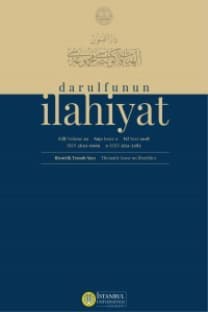Book Review: Fahmy, Khaled. In Quest of Justice: Islamic Law and Forensic Medicine in Modern Egypt. (Oakland, CA: University of California Press, 2018). ISBN: 978-0-52027-903-2
The nineteenth century is a watershed for the encounter of Muslims with modernity. Having commenced the century with a French campaign and the advent of khedival dynasty, Egypt was no less touched by this face-off. Khaled Fahmy’s In Quest of Justice handles this very topic putting Islamic law and forensic medicine in its centre. The book revolves around a medical complex, Qaṣr al-‘Ainī, launched as a military establishment but ended up as a civilian one. At odds with the traditional narrative which makes a big deal of “great men” such as Mehmed Ali Pasha and Clot Bey, a French doctor employed by Mehmed Ali, Fahmy deems this outlook nearly elitist. In the stead, he espouses a bottom-up approach rather than a top-down one; in doing so, the questions on how nonelite Egyptians engaged with the modernization and how they reacted to it are put on the table. Along with this approach, he also suggests that Qaṣr al-‘Ainī must be deliberated over in reference not to a European frame but to an Ottoman one. Aside from Qaṣr al-‘Ainī, the book privileges majālis al-siyāsa, a legal entity founded in the midst of the nineteenthcentury, to which forensic reports of Qaṣr al-‘Ainī medicines were dispatched. The book spotlights not only the siyāsa legal practice, but also the transformation the ruling class underwent between 1830 and 1880.
Fahmy, Khaled. In Quest of Justice: Islamic Law and Forensic Medicine in Modern Egypt. Oakland, CA: University of California Press, 2018. xv + 377 pp., $39.95 (Hardcover), ISBN: 9780520279032.
The nineteenth century is a watershed for the encounter of Muslims with modernity. Having commenced the century with a French campaign and the advent of khedival dynasty, Egypt was no less touched by this face-off. Khaled Fahmy’s In Quest of Justice handles this very topic putting Islamic law and forensic medicine in its centre. The book revolves around a medical complex, Qaṣr al-‘Ainī, launched as a military establishment but ended up as a civilian one. At odds with the traditional narrative which makes a big deal of “great men” such as Mehmed Ali Pasha and Clot Bey, a French doctor employed by Mehmed Ali, Fahmy deems this outlook nearly elitist. In the stead, he espouses a bottom-up approach rather than a top-down one; in doing so, the questions on how nonelite Egyptians engaged with the modernization and how they reacted to it are put on the table. Along with this approach, he also suggests that Qaṣr al-‘Ainī must be deliberated over in reference not to a European frame but to an Ottoman one. Aside from Qaṣr al-‘Ainī, the book privileges majālis al-siyāsa, a legal entity founded in the midst of the nineteenthcentury, to which forensic reports of Qaṣr al-‘Ainī medicines were dispatched. The book spotlights not only the siyāsa legal practice, but also the transformation the ruling class underwent between 1830 and 1880.
